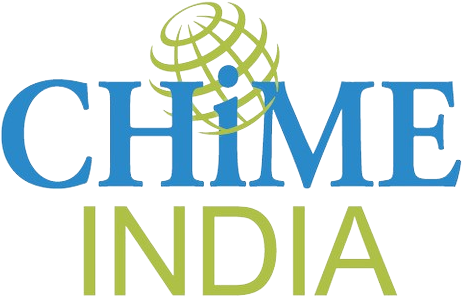Written by : Aishwarya Sarthe
May 31, 2023

Ransomware attacks have become a prevalent and lucrative form of cybercrime, targeting organizations across various sectors. In 2023, India's healthcare sector witnessed a surge in Ransomware attacks, fueled by digital currencies used by cybercriminals. This article examines the state of Ransomware in 2023 and how digital currency has contributed to cyber attacks in India's healthcare sector.
The Rising Threat of Ransomware
Ransomware attacks have evolved into highly sophisticated and profitable cybercrimes. In 2023, the frequency and severity of these attacks will increase globally, affecting healthcare organizations of all sizes and sectors. Healthcare industry, with valuable patient data and critical infrastructure, is a prime target for Ransomware attacks.
Impact on the Healthcare Sector
Ransomware attacks have a significant impact on India's healthcare sector, resulting in disruptions to essential services, compromising patient data, and jeopardizing patient care. Hospitals and healthcare institutions experience operational disruptions that lead to treatment delays and compromise patient safety. The financial implications, including ransom payments and recovery costs, are substantial.
Digital Currency as a Facilitator
Digital currencies, particularly Bitcoin, have facilitated the rise of Ransomware attacks in the healthcare sector. Cybercriminals are drawn to these currencies due to their decentralized nature, providing a level of anonymity and making it challenging to trace transactions. This enables them to demand and receive ransom payments without immediate detection by law enforcement agencies.
Anonymity and Obfuscation
Crypto currencies provide anonymity for cybercriminals involved in Ransomware attacks. By using digital wallets and blockchain technology, perpetrators can obscure their identities, making it challenging for authorities to track funds flow. This anonymity incentivizes cybercriminals to conduct attacks and demand ransoms, as they reduce detection risk.
Difficulties in Tracking and Retrieving Funds
Digital currencies present challenges in tracking and retrieving ransom payments. Once the ransom is paid in digital currency, it is often converted into multiple transactions, mixed with legitimate funds, or transferred to different accounts. This makes it difficult to trace and recover the funds.
Evolving Techniques
Cybercriminals continue to adapt their tactics to maximize ransomware attacks' effectiveness. This includes advanced encryption algorithms, targeted phishing campaigns, and software vulnerabilities exploitation. Digital currencies further enable criminals to demand larger ransoms and finance their operations, leading to a continuous cycle of attacks.
Mitigating Ransomware Attacks in India's Healthcare Sector
To combat the rising threat of ransomware attacks fueled by digital currencies in India's healthcare sector, several crucial measures can be taken. These include strengthening cybersecurity measures, implementing regulatory frameworks, fostering international cooperation, and raising public awareness.
In conclusion, the persistent threat of ransomware attacks fueled by digital currencies in India's healthcare sector requires a comprehensive and collaborative response. By strengthening cybersecurity, implementing regulatory measures, fostering international cooperation, and raising public awareness, the healthcare sector can effectively mitigate ransomware attacks. This multifaceted approach will not only protect patient data and critical infrastructure but also diminish the role of digital currencies in facilitating cybercrime.
The College of Healthcare Information Management Executives (CHIME) is an executive organization dedicated to serving senior digital health leaders. CHIME includes more than 5,000 members in 56 countries and two US territories and partners with over 150 healthcare IT businesses and professional services firms. CHIME enables its members and business partners to collaborate, exchange ideas, develop professionally and advocate the effective use of information management to improve the health and care throughout the communities they serve. CHIME's members are chief information officers (CIOs), chief medical information officers (CMIOs), chief nursing information officers (CNIOs), chief innovation officers (CIOs), chief digital officers (CDOs), and other senior healthcare leaders. The CHIME India Chapter became the first international chapter outside North America in 2016 and is now a community of over 70+ members in India. For more information, please visit www.chimecentral.org
